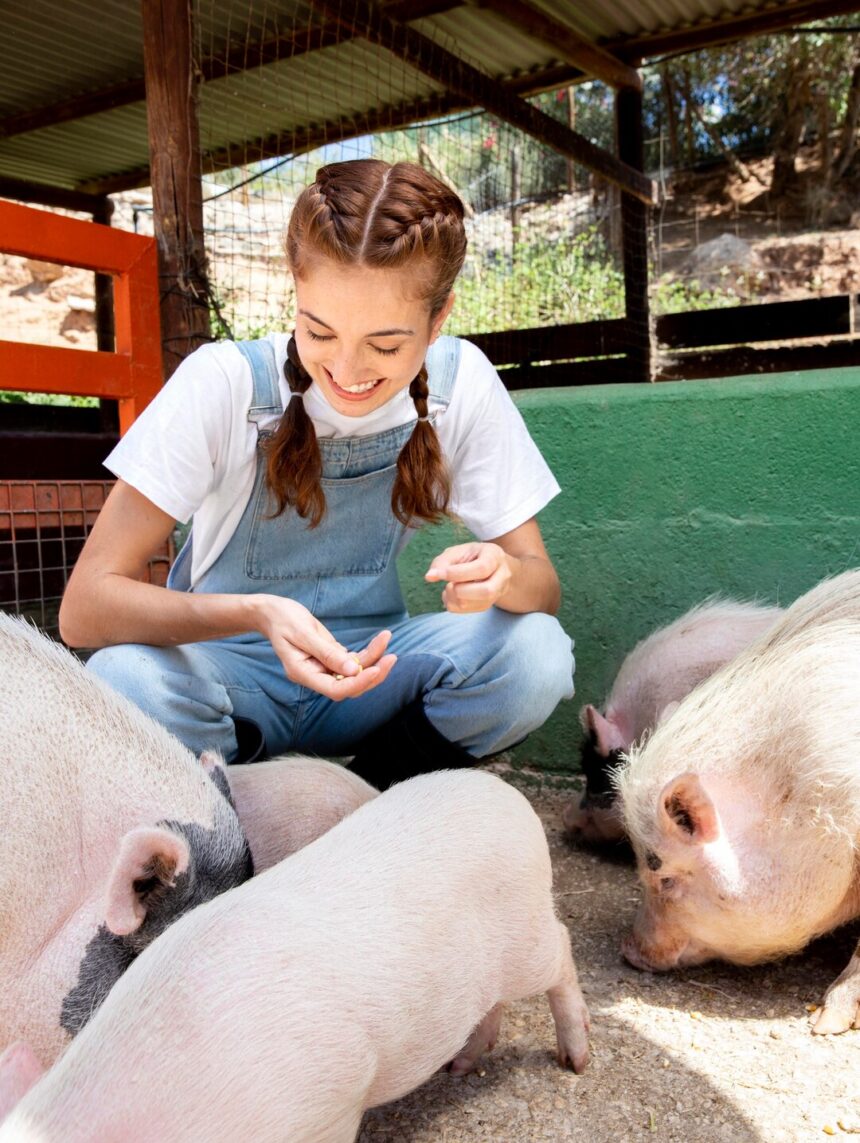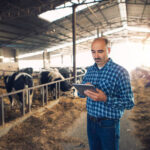Large White pigs, also known as the English Large White or simply Large Whites, are a popular breed among pig farmers in South Africa. Known for their prolificacy, fast growth rate, and efficient feed conversion, Large Whites are highly valued for both commercial pork production and small-scale farming operations. Whether you’re considering breeding Large White pigs or already have a herd, here are 10 important things you should know about their breeding and farming:
- Breeding Stock Selection: When starting a Large White breeding program, it’s crucial to select high-quality breeding stock with desirable traits such as good conformation, strong maternal instincts, and high fertility. Choosing superior genetics will lay the foundation for a productive and profitable herd.
- Prolificacy: Large White sows are renowned for their prolificacy, often farrowing large litters of piglets. This high reproductive efficiency is advantageous for commercial producers looking to maximize pork production and profitability.
- Fast Growth Rate: Large White pigs exhibit rapid growth from a young age, making them efficient converters of feed into meat. This trait is highly desirable for commercial pork production, as it allows farmers to bring pigs to market weight in a shorter time frame.
- Feed Efficiency: Large Whites are known for their efficient feed conversion, meaning they require less feed to produce a kilogram of meat compared to some other pig breeds. This makes them a cost-effective choice for pig farmers looking to optimize their feed resources.
- Adaptability: Large White pigs are adaptable to various management systems and environmental conditions, making them suitable for different farming operations across South Africa. Whether raised in intensive confinement or on free-range systems, they can thrive with proper care and management.
- Disease Resistance: While no pig breed is immune to diseases, Large Whites are known for their robust health and disease resistance. However, proper biosecurity measures should still be implemented to prevent the introduction and spread of diseases on the farm.
- Temperament: Large White pigs are generally docile and easy to handle, making them suitable for farmers of all experience levels. Their calm temperament and cooperative nature facilitate routine management tasks such as feeding, handling, and health checks.
- Housing and Management: Providing adequate housing and management is essential for the health and well-being of Large White pigs. This includes spacious and well-ventilated housing, clean drinking water, balanced nutrition, and regular veterinary care.
- Breeding Programs: Effective breeding programs are key to maintaining and improving the genetic potential of Large White pigs. This may involve selective breeding to enhance desirable traits such as growth rate, litter size, and carcass quality, as well as genetic testing and record keeping to track performance and lineage.
- Market Demand: With their high-quality meat and efficient production characteristics, Large White pigs are in demand in the South African pork market. Farmers who breed and raise Large White pigs can capitalize on this demand by supplying pork to both local consumers and commercial processors.
By understanding these key aspects of breeding and farming Large White pigs in South Africa, farmers can make informed decisions to optimize their operations and contribute to the sustainable growth of the pork industry. With their prolificacy, fast growth rate, and adaptability, Large White pigs are poised to remain a valuable asset to the agricultural sector for years to come.







